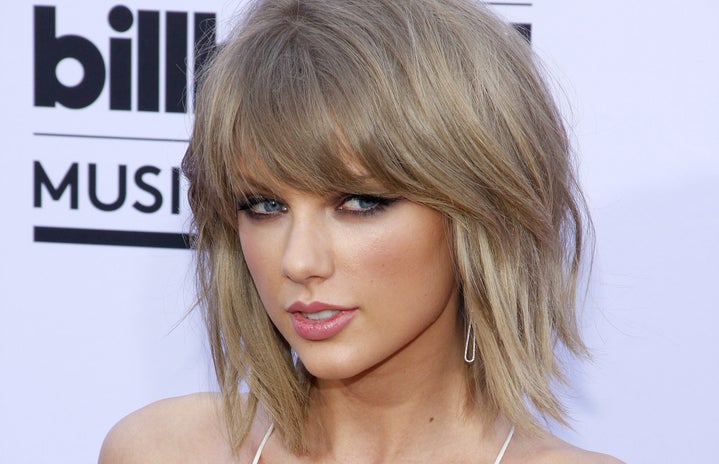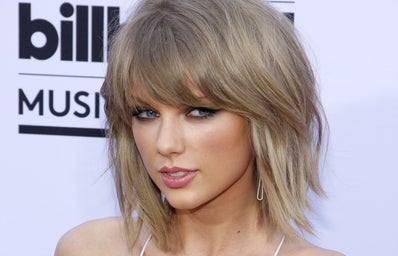Another day, another internet saga. Most recently, internet pop culture has been focused on Damon Albarn, of the band Gorillaz, and his comments toward Taylor Swift. In an interview with Rolling Stones, Albarn shamed Swift, accusing her of not writing her own songs. The internet went berserk.
Firstly, what exactly did Albarn say? You can see the full interview here. But to summarize: Swift doesn’t write her own songs, co-writing doesn’t count (at least when it comes to Swift), and Billie Eilish is better, more talented, and more interesting than Swift. The quote is short, no more than a paragraph, but as a Swiftie, I was so infuriated I could scream. I’m betting Swift felt similarly as she immediately shot back on Twitter. She fired back, writing “I was such a big fan of yours until I saw this. I write ALL of my own songs. Your hot take is completely false and SO damaging.” Swift added that Albarn doesn’t need to like her as an artist, but to attack her intellect and artistry is unfair and messed up. Besides Swift, numerous collaborators like Jack Antonoff and Aaron Dessner and fellow songwriters such as Maisie Peters came to her defense.
And not because I feel a need to defend, but because I need to show how ridiculous Albarn’s words were: Swift has written or co-written every single song she’s ever put out, including the entirely self-written Speak Now. And if you don’t understand the difference between writing and co-writing (hint: there is no difference), I urge you to check out this article. In fact, Albarn’s baseless claims are so laughable that it’s easy not to take them seriously. And in terms of validity, we shouldn’t, but in terms of a sign of sexism in the industry, his words are akin to a blaring siren.
Okay, so now you’re caught up, but maybe you’re still wondering what’s going on. And the truth is, there are a million angles through which to analyze this. Firstly, you can trash Albarn (as much of Twitter’s already done), but this is less interesting, especially when you consider the fact that Albarn is just one of numerous male artists and industry names to attack female artists and call into question their genius.
Well, what then? As a lifelong Swiftie (I’m talking eponymous album debut CD on repeat in the car Swiftie), this really upset me. Not because I care who Albarn is, but because his comments represent a gut-punch realization that for all the strides being made, the industry hasn’t changed that much since 2009. If you’re a Swiftie like me or really just anyone who pays attention to pop culture, I’m going to take a guess that this whole thing is giving you major déjà vu as it’s not the first time a big-name male artist has belittled Swift. If you don’t remember, at the 2009 VMAs musician Kanye West interrupted Swift’s acceptance speech to say that, well, Beyonce did it better.
Now, I’m not saying that these instances are the same by any means, but it’s important to examine the similarities. Not only did both of these men attack Swift’s ability and genius as a musician, but they pitted her and her artistry against other women in the industry. Not only are these men weaponizing other female artists against Swift to push her down, question her ability, and silence her, but they also create a toxic pattern of belittling any and all-powerful women in the industry. Whether you’re a fan of Eilish or Swift or both, you should be mad. By comparing Eilish and Swift, Albarn tells the world: these women aren’t important enough to stand alone. Not only are Swift and Eilish occupying completely different music genres, but they’re also different artists with different styles. His, Kanye’s, and numerous others’ words weaponize women against one another.
Even more upsetting? Swift’s far from the only woman to experience this. From Nicki Minaj and Lady Gaga to Alicia Keys, brilliant female artists from all different genres are objectified, measured up against others, and belittled. And that’s why it’s so imperative that this whole Albarn-Twitter interaction not just be another short-lived internet saga, or else it’ll be 2032, and we’ll still see industry men attacking female artists.
Is there hope then? As cautious as I am to declare this, yes. And that hope comes from powerhouse female artists like Swift. Unlike 2009 (when, to be fair, she was a literal child), Swift refused to stay quiet and immediately called Albarn out on his sexist nonsense. And because of that, Albarn and his PR team were most certainly freaking out, immediately releasing a statement blaming the interviewer (which is problematic in and of itself). If artists — and we as music consumers — can continue to call out this sick behavior, we can foster an industry where none of this is normalized. It’s probably a long journey to a place where women and their art aren’t measured up against one another, but until we get there, I’ll be here writing and calling out this ridiculousness.

